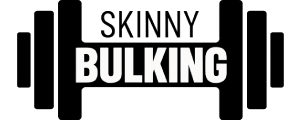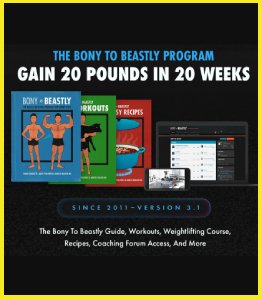For anyone who’s serious about bodybuilding, bulking up quickly is the goal. It’s not just about lifting heavyweights, it’s also about what you eat and how you structure your workouts. Most people think that bulking up requires months of intense training and strict diets. But, with the right tips and tricks, you can see significant muscle growth in a short period of time. In this post, we’ll be sharing some of the most effective tips and tricks to help you bulk up fast, without sacrificing your health or wellbeing. We’ll cover everything from nutrition and training to sleep and supplements, so you can start seeing results right away. If you’re ready to take your muscle growth to the next level, keep reading to learn how to bulk up fast.
1. The importance of a proper diet when trying to bulk up fast

Image: pixabay
When it comes to bulking up fast, a proper diet is crucial. Without the right nutrition, you won’t be able to fuel your body for the intense workouts required to build muscle mass quickly.
First and foremost, you need to consume enough calories. In order to gain weight and build muscle, you need to be in a caloric surplus, meaning you’re consuming more calories than you’re burning. However, it’s important to note that this doesn’t mean you should just eat anything and everything in sight. You want to make sure you’re consuming nutrient-dense foods that will fuel your body properly.
Protein is also essential for building muscle. When you strength train, you’re creating small tears in your muscle fibers, and protein helps repair and rebuild those fibers, leading to muscle growth. Aim to consume at least one gram of protein per pound of body weight. Good sources of protein include lean meats, fish, eggs, and plant-based sources such as beans, lentils, and tofu.
Carbohydrates are also important for fueling your workouts and providing your body with energy. Complex carbs such as whole grains, fruits, and vegetables are great choices, as they provide sustained energy throughout the day.
Finally, don’t forget about healthy fats. Fats provide important nutrients and help your body absorb certain vitamins. Opt for healthy fats such as avocados, nuts, seeds, and olive oil.
Remember, a proper diet is just one piece of the puzzle when it comes to bulking up fast. Be sure to also incorporate strength training exercises and get plenty of rest and recovery time to see the best results.
2. How to calculate caloric intake for muscle growth
When it comes to bulking up and gaining muscle, calculating your caloric intake is crucial. You need to consume more calories than your body burns in order to gain weight, but you also need to make sure you’re consuming the right types of calories.
To calculate your caloric intake, you need to take into account your current weight, height, age, and activity level. There are several online calculators that can help you with this, but the most accurate way is to consult with a nutritionist or a trainer who can calculate your caloric needs based on your specific body composition and fitness goals.
Once you have calculated your caloric intake, it’s important to focus on consuming nutrient-dense foods such as lean protein, complex carbohydrates, and healthy fats. This will give your body the fuel it needs to build muscle while also keeping you in a caloric surplus.
It’s also important to track your progress and adjust your caloric intake accordingly. If you’re not seeing the results you want, you may need to increase your caloric intake or adjust your macronutrient ratios.
Remember, building muscle takes time and dedication, but by calculating your caloric intake and focusing on nutrient-dense foods, you can achieve your muscle growth goals faster and more effectively.
3. Macros breakdown to optimize muscle growth
While many people focus on their workout routines to help build muscle, the nutrition aspect is equally important. The macronutrient breakdown of your meals can have a huge impact on your muscle growth.
First, let’s define what macros are: carbohydrates, fats, and protein. To optimize muscle growth, it’s important to have a higher intake of protein. Consuming protein helps repair and grow muscle tissue, making it essential for muscle growth.
A good rule of thumb is to aim for at least 1 gram of protein per pound of body weight. However, it’s important to also have a balance of carbohydrates and healthy fats in your diet. Carbohydrates provide energy for your workouts, while healthy fats help with hormone production and joint health.
One popular approach to macros for muscle growth is the “40/40/20” ratio, which means 40% of your calories come from carbohydrates, 40% from protein, and 20% from healthy fats. However, this ratio can vary depending on individual needs and goals.
It’s also important to track your macros to ensure you’re hitting your daily goals. There are many apps and websites that can help you easily track your macros and ensure you’re on the right track for muscle growth.
Remember, building muscle is not just about lifting weights. It’s about fueling your body with the right nutrients to support growth and recovery.
4. High protein foods to include in your diet

Image: pixabay
If you’re looking to bulk up fast and gain muscle, then consuming a high protein diet is crucial. Protein is essential for muscle growth and repair, and without enough of it, you’ll struggle to see progress in the gym.
Some high protein foods to include in your diet include lean meats such as chicken, turkey, and beef, as well as fish such as salmon and tuna. Plant-based protein sources such as beans, lentils, and tofu are also great options for those following a vegetarian or vegan diet.
Eggs are another excellent source of protein and can be consumed in a variety of ways such as scrambled, boiled or fried. Dairy products such as milk, cheese, and Greek yogurt are also high in protein and can be easily incorporated into your diet.
In addition to whole foods, protein supplements such as whey protein powder, casein protein powder, and plant-based protein powders can also help you to reach your daily protein intake goals. These supplements can be added to smoothies, shakes, or even baked goods like pancakes and muffins.
Remember to aim for at least 1 gram of protein per pound of bodyweight to support muscle growth and repair. With a diet rich in high protein foods and supplements, you’ll be well on your way to bulking up fast and achieving your muscle-building goals.
5. Workout tips and tricks to boost muscle growth
When it comes to building muscle quickly, your workout routine will be one of the most important factors. Here are some tips and tricks to help you maximize muscle growth:
1. Focus on compound exercises: Compound exercises work multiple muscle groups at once, allowing you to lift heavier weights and stimulate more muscle growth. Some great compound exercises include squats, deadlifts, bench presses, and pull-ups.
2. Lift heavy weights: In order to build muscle, you need to create enough stress on your muscles to cause them to adapt and grow. This means lifting heavy weights that challenge you and push you to your limits.
3. Use progressive overload: Progressive overload means gradually increasing the weight you lift over time. This helps to keep your muscles constantly challenged and ensures that you are making progress.
4. Incorporate rest days: Rest days are crucial for muscle growth as they allow your muscles to recover and repair. Aim for at least one or two rest days per week to give your muscles a break.
5. Don’t neglect cardio: While weightlifting is important for building muscle, cardio can also be beneficial for overall fitness and health. Try incorporating some high-intensity interval training (HIIT) into your routine to improve your cardiovascular endurance and burn fat.
By following these workout tips and tricks, you can maximize muscle growth and achieve your bulking goals faster. Remember to listen to your body and adjust your routine as needed to avoid injury and ensure continued progress.
6. The importance of progressive overload
If you’re looking to bulk up fast, then progressive overload is a must. Progressive overload is all about gradually increasing the demands placed on your muscles during training. This means that you need to constantly challenge your muscles with heavier weights or more reps to continue making progress.
Without progressive overload, your muscles will adapt to your workouts and you’ll hit a plateau in your muscle growth. So, if you want to continue seeing results and pack on muscle quickly, you’ll need to keep pushing yourself.
One way to do this is by using the principle of progressive overload where you gradually increase the weight you’re lifting. Start by lifting a weight that you can comfortably lift for 8-10 reps. Once you are comfortable with this weight, gradually increase the weight so that you can only lift it for 6-8 reps. Keep repeating this process, gradually increasing the weight and lowering the reps until you’re lifting heavy weights for just 4-6 reps.
Bear in mind that progressive overload shouldn’t just be applied to the weight you’re lifting. You can also apply it to the number of sets and reps you perform, as well as the exercises you do. Switching up your routine, changing the number of sets and reps, and trying new exercises can all help to keep your muscles guessing and ensure that you’re making progress.
Remember, if you want to bulk up fast, then progressive overload is key. It’s important to challenge your muscles with heavier weights and new exercises to keep them growing and adapting to your workouts.
7. Compound exercises for maximum muscle stimulation
When it comes to building muscle quickly, compound exercises are your best friend. These exercises target multiple muscle groups at the same time, providing maximum muscle stimulation in a single movement.
Some of the most effective compound exercises include squats, deadlifts, bench presses, and pull-ups. These exercises engage multiple muscle groups, including your core, legs, back, chest, and arms, allowing you to build muscle quickly and efficiently.
In addition to targeting multiple muscle groups, compound exercises also allow you to lift heavier weights, which is essential for building muscle mass. By lifting heavier weights, you create more muscle tension, which stimulates muscle growth and hypertrophy.
However, it’s important to perform these exercises with proper form to avoid injury. Consider working with a personal trainer or doing research to ensure you’re performing these exercises correctly.
Incorporating compound exercises into your workout routine can help you build muscle quickly and efficiently, allowing you to achieve your bulking goals in no time.
8. Rest and recovery for optimal muscle growth
When it comes to bulking up fast and gaining muscle, rest and recovery are just as important as the workouts themselves. It’s during rest periods that your muscles repair and grow, so it’s crucial to make sure you’re allowing enough time for recovery.
One of the best ways to promote rest and recovery is by getting enough sleep. Aim for at least 7-8 hours of quality sleep each night to ensure your body has the time it needs to recover. Additionally, taking rest days from your workouts is also important. This allows your muscles to recover and prevents overtraining, which can actually hinder muscle growth.
Another important factor in rest and recovery is proper nutrition. Make sure you’re consuming enough protein, as this is essential for muscle repair and growth. You may also want to consider incorporating supplements such as creatine or BCAAs (branched-chain amino acids) into your diet to help boost recovery and muscle growth.
Lastly, don’t forget about stretching and foam rolling. This can help to alleviate muscle soreness and tightness, as well as improve flexibility, which can help prevent injury and improve overall performance in the gym. By prioritizing rest and recovery, you’ll be able to maximize your muscle growth and achieve your bulking goals faster.
9. The role of supplements in muscle growth

Image: unsplash
Supplements can play an important role in muscle growth, but they are not a magic solution. It’s important to remember that supplements should be used in conjunction with a balanced diet and regular exercise routine. They are not a substitute for hard work and dedication.
There are a variety of supplements available on the market that can aid in muscle growth. Protein supplements, such as whey protein, are a popular choice for many bodybuilders as they provide the necessary amino acids needed for muscle repair and growth. Creatine is also a popular supplement that can help increase muscle strength and size.
However, it’s important to do your research before taking any supplements. Make sure to read the label and understand the ingredients, as well as any potential side effects. It’s always best to consult with a healthcare professional before adding any new supplements to your routine.
Keep in mind that supplements should not be relied upon as the primary source of nutrients. A well-balanced diet that includes a variety of protein sources, healthy fats, and complex carbohydrates is essential for building muscle mass. Supplements should only be used to supplement an already healthy diet and exercise routine.
10. Common mistakes to avoid when trying to bulk up fast
When it comes to bulking up fast, there are a few common mistakes to avoid. Firstly, it’s important not to overdo it with the weightlifting. While lifting heavy weights is great for building muscle, it’s important to give your body enough time to recover in between workouts. Overtraining can lead to injury, and it can actually slow down your muscle growth rather than speed it up.
Another common mistake is neglecting your diet. If you’re trying to bulk up fast, you need to be consuming more calories than you’re burning. This means eating a lot of nutrient-dense foods like lean meats, whole grains, and vegetables. Avoid processed foods and sugary snacks, as these will only lead to weight gain and won’t provide your body with the nutrients it needs to build muscle.
It’s also important to avoid relying too heavily on supplements. While supplements can be helpful in providing your body with the nutrients it needs to build muscle, they should never be a replacement for a healthy, balanced diet. Also, always consult with a doctor before taking any supplements.
Lastly, don’t forget about the importance of rest and recovery. Your muscles grow and repair themselves when you’re resting, so it’s important to get enough sleep and take rest days in between workouts. Pushing yourself too hard without enough rest can lead to burnout and injury, which will only set you back in your muscle-building goals.







Leave a Reply